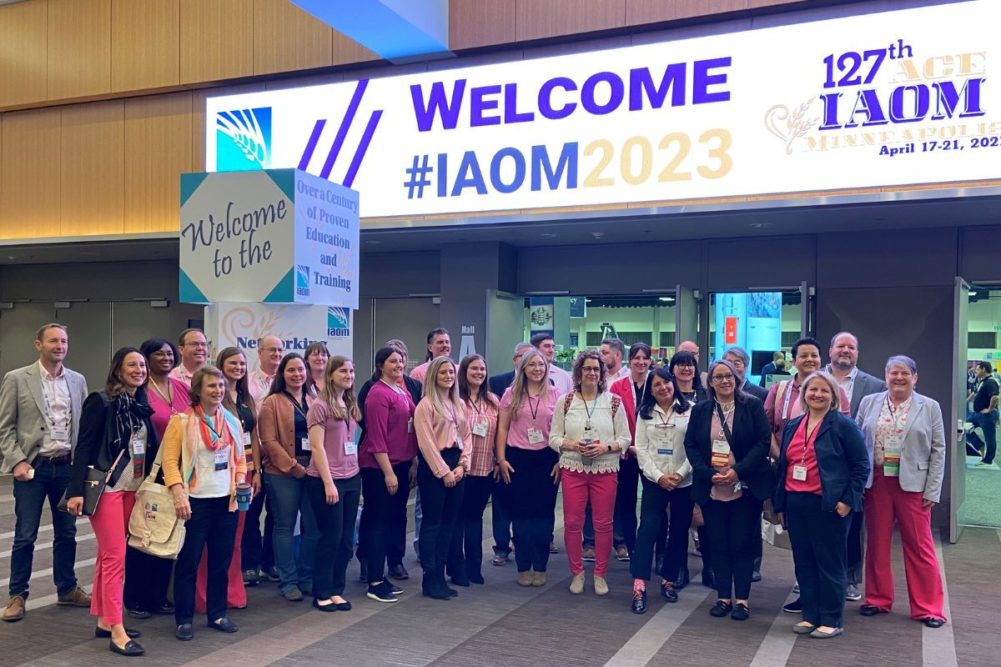 KANSAS CITY, MISSOURI, US – In a long overdue development, the grain and grain processing industries in North America are starting to become more diverse, particularly in terms of attracting and elevating more female employees. Perhaps no organization has made greater strides in diversity, equity and inclusion than the International Association of Operative Millers (IAOM), a global flour milling association based in the US.
KANSAS CITY, MISSOURI, US – In a long overdue development, the grain and grain processing industries in North America are starting to become more diverse, particularly in terms of attracting and elevating more female employees. Perhaps no organization has made greater strides in diversity, equity and inclusion than the International Association of Operative Millers (IAOM), a global flour milling association based in the US.
At its recent annual conference in Minneapolis, Minnesota, US, a large contingent of women participated in the event as part of the Women in Milling program that was inaugurated several years ago and continues to grow. Approximately 135 women attended the conference, which was about 13% of the total number of delegates. Many of them were first-time attendees and had met one another virtually on the association’s monthly Women in Milling session.
But the increase in women in the association is just part of the success story. IAOM is starting to elevate its female members to high-level leadership roles. Already led by Melinda Farris, who has been chief executive officer of the association since 2007, two women are now in line to be president of the IAOM in consecutive years. Fran Churchill, a milling science professor at Kansas State University, will ascend to the presidency in 2024-25 and current treasurer Jennifer Harnish, chief human resources officer of PHM Brands, will become president the following year. Churchill will be the first female president in IAOM history.
Current IAOM President Steve Matson of Bay State Milling noted in a recent speech, “Prior to 2022 — that is just last year — the total number of women who have served in that capacity (on the executive committee) had been zero. If IAOM can continue to build a more inclusive community for milling professionals, we will all benefit from that.”
It's worth noting that a number of men at the IAOM Conference showed support for the Women in Milling initiative by wearing a pink item of clothing.
The North American Millers’ Association (NAMA) also has a strong track record in this area. Since its inception in 1998, three of the four NAMA presidents have been women: Betsy Faga, Mary Waters and current president Jane DeMarchi.
This push to diversify also is taking place outside the US milling industry. UK Flour Millers (formerly nabim), for instance, has dedicated a section on its website to “Women in Milling,” which details the history of women in the industry and profiles various females working in today’s flour milling sector.
The grain and grain processing industries in North America have made less progress in racial diversity. Some of it is a demographic issue. Flour milling, feed milling, and grain handling traditionally have attracted individuals from farms and rural communities. Racial and ethnic minorities make up only about 20% of the rural population as opposed to 43% of the urban total. Today, just 1.4% of farmers identify as Black or mixed race, compared to 14% 100 years ago. To their credit, these industries are increasing their recruiting efforts in urban areas and, specifically, are trying to attract more minorities.
As numerous studies have shown, companies with strong DEI programs benefit from higher productivity, greater employee retention, increased revenue, and greater returns to shareholders. For those reasons and because it is simply the right thing to do, the push for a more diverse workforce must continue.
Arvin Donley is editor of World Grain.




